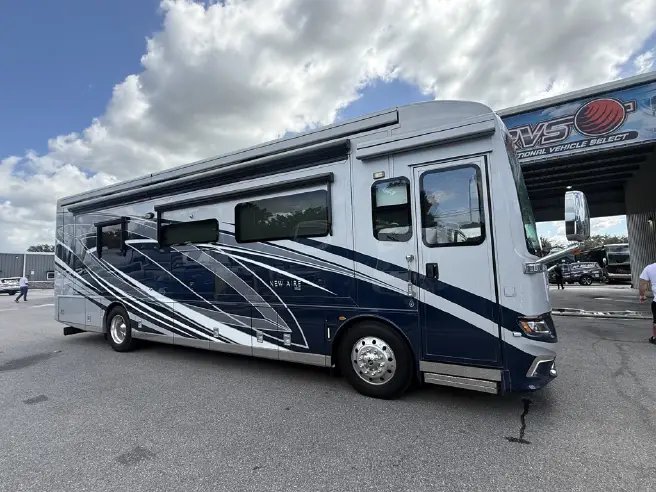If you’ve taken the plunge and become a full-time RVer, you’re already familiar with the joys of the open road and the lifestyle that comes with traveling 24-7. And while there are a lot of factors that you likely took into consideration before living full-time in your rig, one thing that you may not have considered is what happens if you decide to travel internationally.
There are, of course, options for RVing overseas. You can fly abroad and rent an RV when you arrive, or you can arrange to have your RV shipped overseas by cargo ships that specialize in transporting vehicles. These ships generally charge per cubic meter; depending on the size of your RV, this could end up costing several thousand dollars each way. Both of these options may be more of a hassle or more expensive than you’d like. For those who would like to travel internationally, read on for some simple, budget-friendly tips on how to make sure your rig is safe while it stays stateside.
- RV storage – One of the main questions you likely have if you are planning on traveling internationally is, “Where will I store my RV?” The answer to this question may depend on how long you plan on being out of the country. RV storage facilities near the airport you will be flying out of are one option, though many of these facilities store RVs for six months to a year at a time so it may be difficult to find a facility willing to take an RV for only a few weeks. Another option is parking your rig at an RV park and driving or taking a cab to the airport.
- Security – When traveling full time in your RV, security is always an issue. Since everything you own is inside the rig, it’s important to choose a storage spot that is safe. If you do go the route of leaving your vehicle in an RV park, make sure the grounds are well lit and ask if there is a nightly patrol and 24-hour security camera surveillance. It may not be a bad idea to scout out RV parks with gated access. While these may cost a bit more per week, it will be worth it to have the extra peace of mind while you travel abroad.
- Power – Depending on the time of year you plan on traveling, you may be leaving your RV susceptible to extreme cold or heat while you’re away. Whether you decide to use an RV storage facility or park your rig at an RV park or campground, consider keeping it hooked up to a power source so that you can continue to run your heat or AC at maintenance levels. This is also a good idea if you would like to keep your fridge or any other appliances running.
- Consider an RV swap – If you’re not comfortable leaving your RV for several weeks at a time in an RV park, consider an RV swap with someone overseas. An RV swap is when you arrange to use an RV owned by someone overseas and in exchange they are able to come stateside and use your RV for traveling. This gives you the opportunity to continue RV traveling abroad without the costing of renting, plus you have someone making use of and watching your RV while you’re on vacation.
- Last minute checks – Whether you decide to store, park, or swap your RV while you travel abroad, it’s important to do those last minute maintenance checks to ensure your beloved rig stays in tip-top shape while you’re away. Start by checking all seals around the doors, windows, and roof for any cracked or gaping areas that need repaired. Also, take precautions to avoid moisture infiltration and frozen pipes by putting a moisture control product like DampRid in your rig or using anti-freeze in the pipes.
Have any questions? Be sure to contact us!




